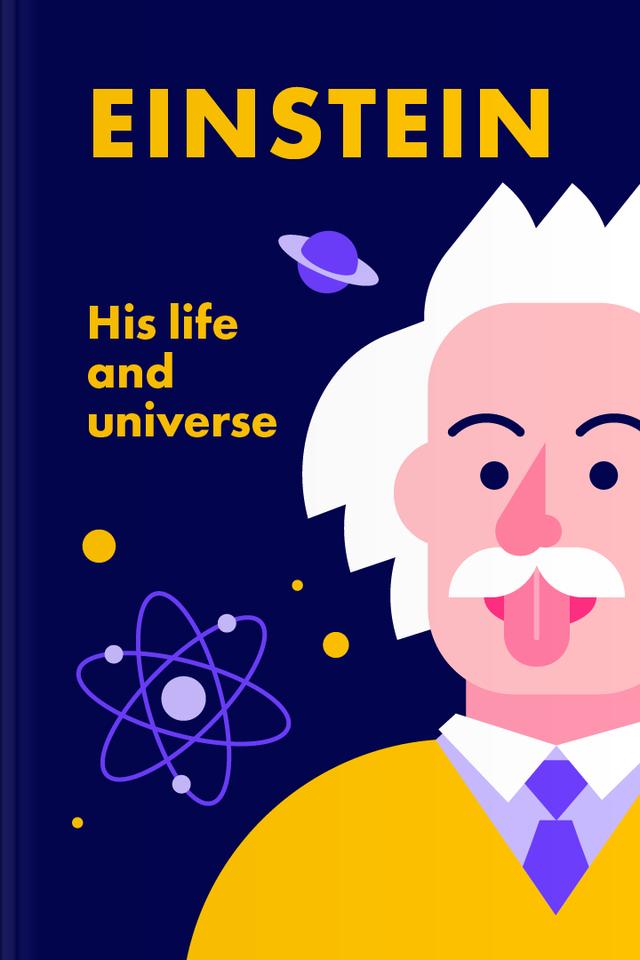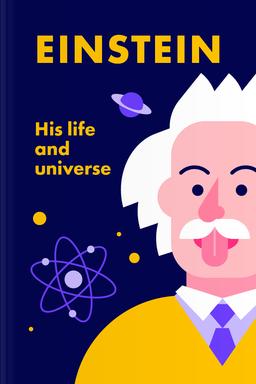You’ll learn
- Why it's vital to do things your way
- The inextricable link between nature and math
- How to be yourself in challenging circumstances
- Why no one understands geniuses
Protect the world’s peace. Donate to support Ukraine

first KEY POINT
Albert Einstein’s story is one of creativity and freedom. He believed there was harmony in the universe, and science had the duty to discover it.Einstein is most famous for the general theory of relativity, which describes the interplay between matter, motion, and energy. This theory was a product of a thought experiment rather than a laboratory experiment.Einstein's scientific quest began in 1895 when he was 16 years old. For the next three decades, he would be known as a revolutionary. In 1925, he reached a turning point in his career and began questioning the quantum revolution he helped launch. This resistance continued until he died in 1955.Politically, he challenged the excessive control of the state and the centralization of authority. He was a pacifist and resisted nationalism, militarism, and any form of herd mentality. He became famous for his accurate prediction of the 1919 eclipse.He was kind, humble, and gentle but detached from his family. For example, 17 years after his divorce from his wife, Mileva Marić, he won the Nobel Prize for Physics and gave the prize money to her as promised before the divorce.This summary shines a light on a man's private and public life whose discoveries shaped the modern era.
We will explore the benefits of developing the ability to think outside the box and stay focused against all odds to leave an imprint on the sands of time. Stay tuned to discover more about a challenger of conventional wisdom with a curious mind second to none.
second KEY POINT
Einstein’s development as a child was slow. He didn’t use words until he was over two years old and had to practice everything before speaking aloud. He thought in pictures and later described them in words.His parents were of Jewish descent and lived in the rural villages of Swabia in southwestern Germany. His family valued education and were irreligious. This background nurtured independent thinking in Albert. His father, Hermann, was born in the Swabian village of Buchau in 1847. His mother, Pauline Koch, was 11 years younger than his father but had a strong personality that matched his father’s passivity.Einstein was born in Ulm on March 14, 1879, at 11:30 am. A year later, the family moved to Munich. His only sibling, Maria (called Maja), was born in November 1881, and they grew to become soul mates.He was a loner and spent more time meditating than playing games with his cousins and other children that often visited their backyard. He relished puzzles and the erection of complex structures with his toy building set. He had temper tantrums which he outgrew later in life.During childhood, he was fascinated with a compass whose needle was controlled by an invisible force field. Einstein later stated that this experience made a lasting impression on him. He became devoted to field theories.The boy never liked to cram. He considered mathematical problems as something that he could apply in everyday life. And although he knew how to compose complex equations, for him, they were primarily a way to designate the magic of nature.Einstein showed an inclination to systematize rather than the ability to empathize while growing up. He loved music and played the violin often.

Continue reading with Headway app
Continue readingfirst KEY POINT
second KEY POINT
third KEY POINT
fourth KEY POINT
fifth KEY POINT